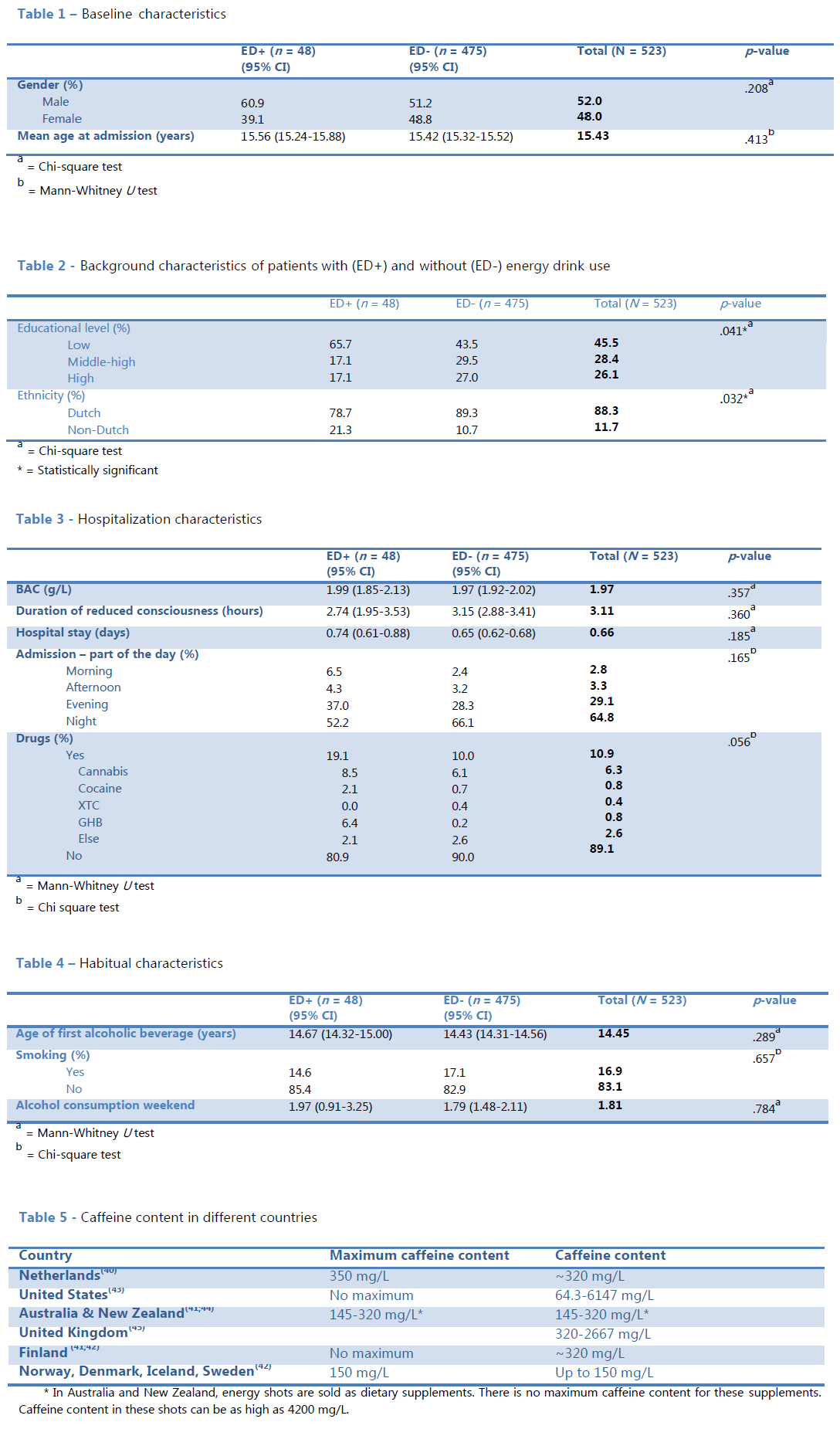
Adolescent Alcohol Intoxication and the Consumption of Energy Drink in the Netherlands – Is There a Problem?
2Faculty of Behavioural Sciences, University of Twente
Background: In the past years, the consumption of energy drinks and alcohol mixed with energy drinks (AmED) has gained popularity in Europe and the United States. Consumption of AmED has various negative short term (i.e. injuries as a result of risk-taking behaviour) and long term (i.e. alcohol dependence later in life) effects. There is a maximum permitted quantity of caffeine in beverages in the Netherlands (350 mg/L), in contrast to countries like the United States and the United Kingdom (no maximum), where caffeine contents may be as high as 6100 mg/L.
Objective: Direct clinical health effects of AmED consumption are hardly known. The aim of this study is to examine these effects.
Methods: For the past three years, data from all Dutch hospitals were collected, using the Dutch Paediatric Surveillance System (NSCK) database. Nationwide, every time an adolescent is admitted to one of the departments of paediatrics with an alcohol-related problem, a questionnaire is collected, which is implemented in the NSCK database.
Results: Two groups were created: adolescents who consumed energy drink at the event (ED+) and adolescents who did not (ED-). Blood alcohol concentration (BAC), hospital stay and duration of loss of consciousness did not differ significantly between both groups, nor did the mean age, sex ratio and habitual characteristics (age of first alcoholic beverage, smoking and alcohol consumption during weekend). In the ED+ group, there were significantly more adolescents in lower education and drugs were used twice as often.
Conclusion: Consumption of AmED with relatively low doses of caffeine does not lead to higher BAC in Dutch adolescents presented to the hospital with alcohol intoxication. As a side effect, adolescents in the ED+ group used drugs twice as often and were in lower education more often, a combination which is also seen in the general Dutch population.


Powered by Eventact EMS